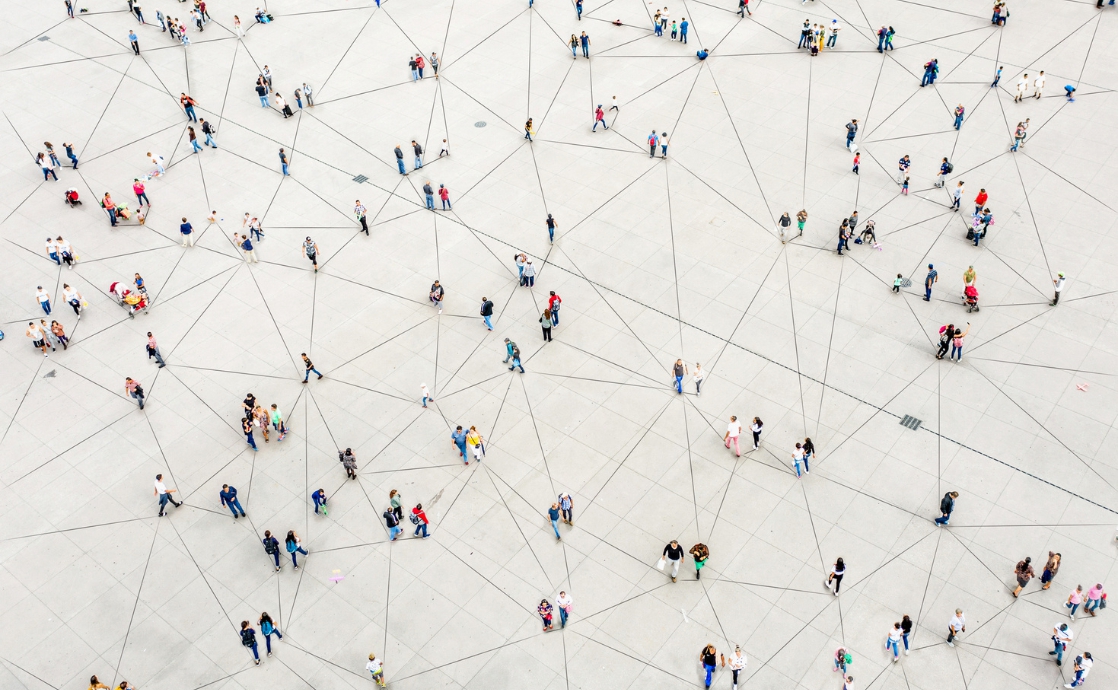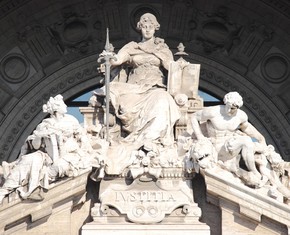The views expressed in our content reflect individual perspectives and do not represent the authoritative views of the Baha'i Faith.
Two statements by the global governing body of the Baha’i Faith, the Universal House of Justice, make clear the challenge facing the world today:
It is not merely material well-being that people need. What they desperately need is to know how to live their lives — they need to know who they are, to what purpose they exist, and how they should act towards one another; and, once they know the answers to these questions they need to be helped to gradually apply these answers to everyday behavior. It is to the solution of this basic problem of mankind that the greater part of all our energy and resources should be directed.
RELATED: The Lesser Peace and the Most Great Peace
These essentially spiritual questions — how to live, who we are, and how to define our purpose — lead directly to the primary Baha’i principle of human oneness, as explained here by the Universal House of Justice:
Humanity is gripped by a crisis of identity, as various peoples and groups struggle to define themselves, their place in the world, and how they should act. Without a vision of shared identity and common purpose, they fall into competing ideologies and power struggles. Seemingly countless permutations of “us” and “them” define group identities ever more narrowly and in contrast to one another. Over time, this splintering into divergent interest groups has weakened the cohesion of society itself. Rival conceptions about the primacy of a particular people are peddled to the exclusion of the truth that humanity is on a common journey in which all are protagonists.
On the one hand, each one of us has a unique identity: we are all special in some ways and have some gifts we can contribute to humanity.
On the other hand, we are all the same species, made of the same material, with common ancestry, and only differing in superficial ways. Like the cells of our bodies, which all contain the same genes and originate from the same stem cells but which have differentiated to provide special functions for the whole, our bodies are models of the principle of diversity in unity that should characterize and enrich our interactions with all other human beings.
We are all part of one human family in which no one should be considered superior to another, any more than the cells of the body do in their relation to one another. The cells and body parts and systems work together, each contributing its part to the welfare of the whole, and benefitting from the health of the other individual parts. They are held together and work together, guided by the spirit of love that manifests itself on that physical level.
By being our true selves and not trying to be something else, and by recognizing our place in the scheme of things and not being envious of others, we can best find our identity and fulfill our purpose.
In truth, we have two natures or identities — a lower nature, dominated by our animal instincts; and a higher nature, characterized by our spiritual yearnings. By transcending our lower physical and egoic identities through our spiritual powers, our higher true identities can emerge and blossom.
If we do not overcome our lower nature’s desires, we live as a prisoner to them — they can destroy us and those around us. Then, we fail to find our purpose or realize our potential, and are reduced to acting no better than animals, in fact worse. Our lower natures can then use our higher powers to do harm far beyond the capacity of any animal.
If we do develop the virtues we have been endowed with, we can do great good. If, however, we are driven by our vices, we become the cause of evil, as the Baha’u’llah pointed out:
But oh! how strange and pitiful! Behold, all the people are imprisoned within the tomb of self, and lie buried beneath the nethermost depths of worldly desire! Wert thou to attain to but a dewdrop of the crystal waters of divine knowledge, thou wouldst readily realize that true life is not the life of the flesh but the life of the spirit. For the life of the flesh is common to both men and animals, whereas the life of the spirit is possessed only by the pure in heart who have quaffed from the ocean of faith and partaken of the fruit of certitude.
The Baha’i teachings say that in this physical creation, we human beings represent the apex of evolution — but in the spiritual realm, we are at the very beginning of our development. In developing this spiritual nature, we must focus our energies on the ultimate purpose of this worldly existence.
Humans are unique in having these two contrary aspects of their nature. Animals have one nature. They do not have the higher human faculties and the ability to make the moral choices that face humans on a daily basis. Their actions, driven solely by instinct and survival, cannot be regarded as evil. Humans have an animal nature that we share in common with the animals, as well as a spiritual nature that expresses itself through our powers of reason, conscience, and consciousness.
Our lower natures are inherently selfish, while our higher nature is characterized by love, selflessness, and detachment.
Consciously exerting our powers for good allows them to predominate over our evil passions. We live in the world and are free to derive what benefits we can from it, while not being a prisoner of it. We find happiness and fulfill our purpose when our thoughts and actions are being guided by spiritual principles such as truth, love, and justice.
This perspective differs from much that is taught today. Many will discount it without even giving it the consideration it deserves. We are essentially spiritual beings inhabiting the physical realm for a short but significant period of our immortal existence — and our purpose in life is primarily for our true spiritual identities, our souls, to develop the qualities they will need for our next stage of existence. That eternal task can best be accomplished by learning how to overcome our physical natures through the cultivation of our spiritual reality. This world and our bodies are not here to harm us but are essential tools to assist us in our spiritual growth and development.
RELATED: How to Embrace Hope Despite the Decline of the Old World Order
We get to make the choice. Our free will gives us free reign. We decide whether and how much we wish to pursue the development of our souls. Many choose to focus on obtaining the pleasures of this world. It is not an either-or question — all of us have to deal with the physical aspects of life — but one of degrees. The pursuit of spiritual development requires us to rise above the day-to-day desires of our bodies and minds. Whichever nature we tend to feed will tend to grow.
The Baha’i teachings say that the food for our spirits comes from the great educators of humankind — the prophets and founders like Abraham, Moses, Krishna, Buddha, Christ, Muhammad, and most recently, Baha’u’llah. We draw sustenance and strength from their revelations and progress spiritually by following their teachings.
















Comments
Sign in or create an account
Continue with Googleor